Introduction
The landscape of e-commerce is rapidly evolving, and businesses are continually seeking innovative solutions to stay ahead of the competition. Custom Magento extensions have emerged as a vital tool for companies looking to enhance their online platforms, offering tailored functionalities that meet unique operational needs. These bespoke solutions not only improve user experience but also streamline processes, driving efficiency and revenue growth.
As organizations navigate the complexities of digital commerce, understanding the prerequisites for extension development, the planning process, rigorous testing methodologies, and best practices becomes essential. This article delves into the multifaceted advantages of custom Magento extensions and provides a comprehensive guide for businesses aiming to harness their full potential, ensuring competitiveness in an ever-changing market.
Benefits of Magento Custom Extensions
Custom Magento additions serve as a crucial asset for businesses looking to tailor their e-commerce platforms to meet specific operational needs. By implementing these bespoke solutions, companies can enhance their functionality and significantly improve user experience, setting themselves apart in a highly competitive market. 'Unlike standard add-ons, custom options provide unique features that cater to individual business requirements, empowering brands to innovate and adapt swiftly to market demands.'.
The capability to automate processes through tailored additions leads to increased efficiency, allowing businesses to reduce manual workloads and streamline operations. This not only accelerates service delivery but also minimizes the likelihood of human error, which is especially vital in sectors like finance, where compliance and accuracy are paramount. For instance, Nets, a digital payment solutions provider, has successfully leveraged custom solutions to manage complex financial data effectively, ensuring that information is presented in a user-friendly manner that motivates engagement. Karmela Peček, an Instructional Designer at eWyse Agency, emphasized the importance of making technical data accessible, noting that transforming data presentation is key to user motivation.
Moreover, as e-commerce continues to evolve, businesses must remain agile. Statistics show that e-commerce has been growing steadily despite market fluctuations, highlighting the necessity for platforms that can adapt seamlessly. 'The potential of tailored plugins goes beyond simple functionality; they can boost income by increasing sales conversions and enhancing customer satisfaction.'. For example, Shopify, a leader in digital commerce, has powered over half a trillion dollars in global sales, showcasing the significant impact that tailored solutions can have on revenue generation.
In summary, investing in customized software solutions not only addresses immediate business requirements but also promotes long-term development, ensuring that companies stay competitive and adaptable in a constantly evolving digital environment.
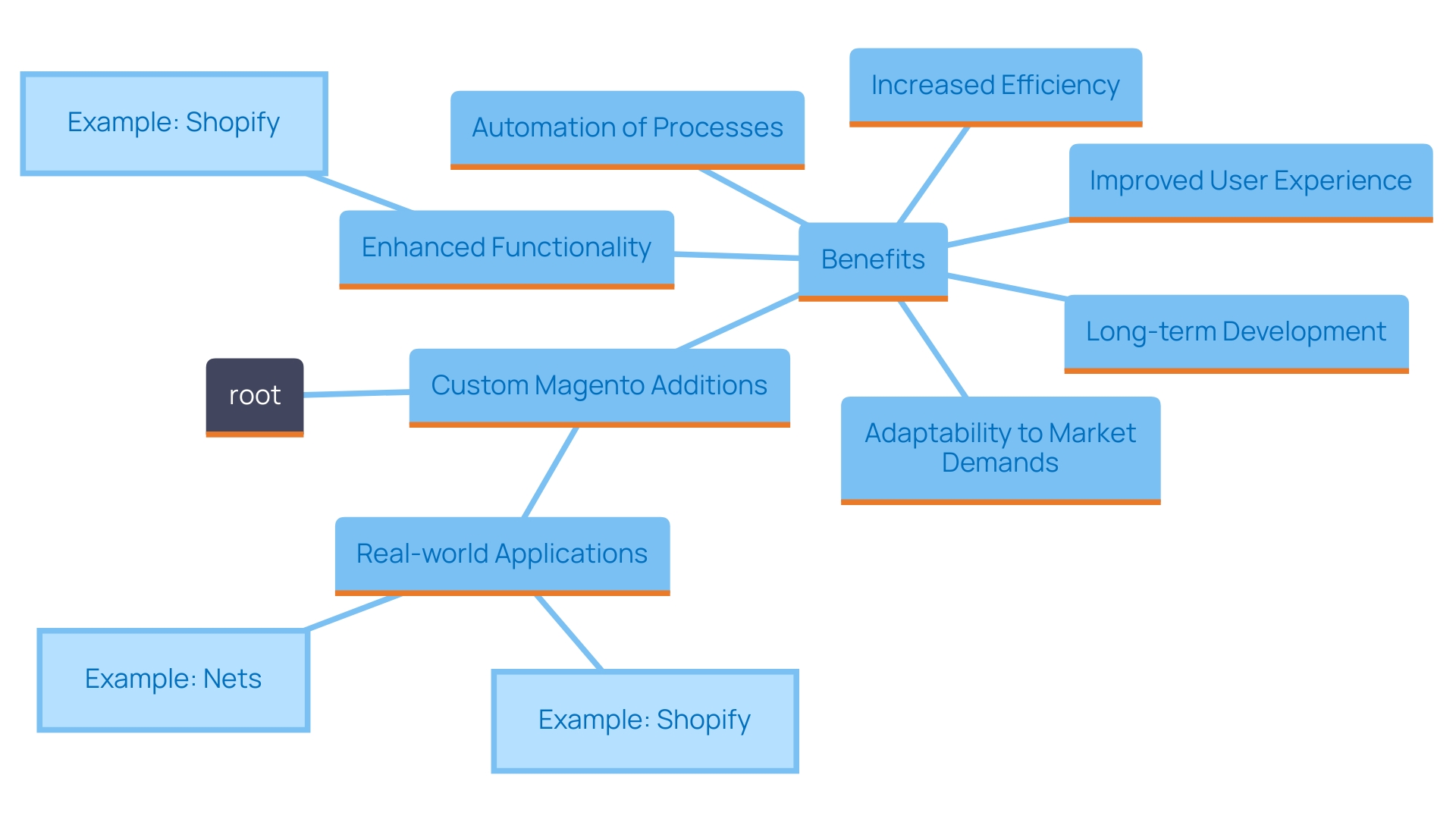
Prerequisites for Magento Extension Development
Before starting on the extension creation process, it’s essential to have a solid understanding of PHP, the foundation of Magento's architecture. Nearly 72.9% of all websites utilize PHP, underscoring its importance in crafting dynamic online applications. Developers should familiarize themselves with Magento's unique module structure and the Model-View-Controller (MVC) framework, which are essential for effective programming.
Establishing a local programming environment is also crucial. Tools such as Composer for dependency management and Git for version control streamline the development process. For instance, when using Composer, ensure you have your authentication keys ready for accessing the e-commerce repository. This allows Composer to download the base code of the platform efficiently. As a best practice, create an auth.json file to securely store your public and private keys, facilitating smooth operations.
Furthermore, as emphasized by Mark Shust, an experienced developer, grasping the intricacies of utilizing Docker can greatly improve your workflow. 'His insights from the session "Docker Like a Rock Star: Magento Edition" reveal best practices for adopting Docker, particularly for teams new to containerization, which can mitigate common performance issues related to the large filesystem.'.
'Allocating time to excel in these essential components not only equips you for current obstacles but also allows you to utilize the complete capabilities of Magento as you advance in your journey of growth.'.
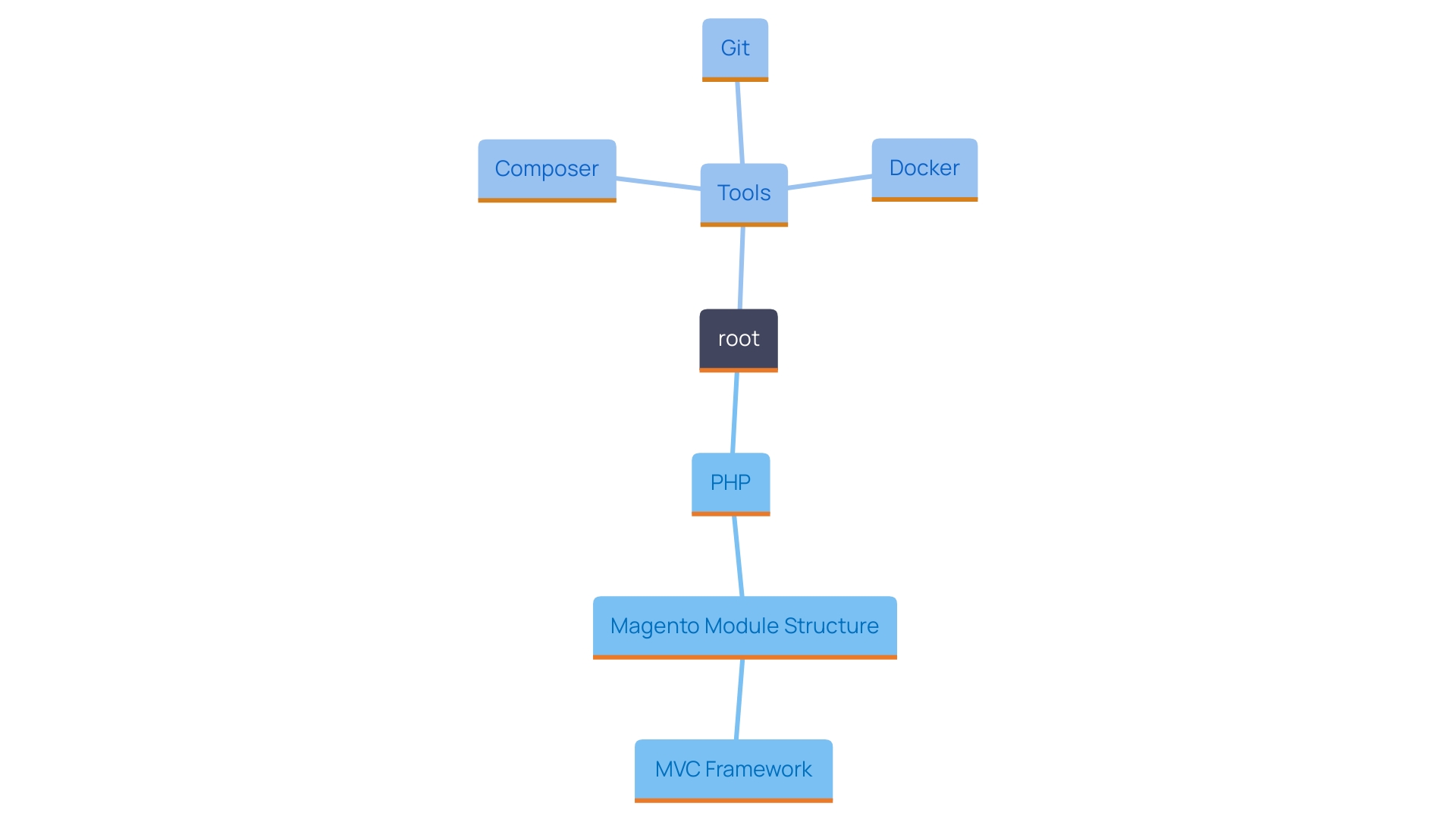
Step 1: Identifying the Need and Planning the Extension
Conducting comprehensive research is essential to pinpoint the unique needs of your business and its target audience. Interact with individuals directly to collect important insights that emphasize their challenges and preferred attributes. This step not only informs the development process but also promotes a design approach centered around individuals that can significantly enhance satisfaction.
Create a detailed plan that serves as a blueprint for your project. This plan should clearly outline the objectives of the extension, its core functionalities, and how it will seamlessly integrate with your existing systems. For instance, organizations like TBC Bank exemplify this approach by strategically aligning their digital products with customer needs to enhance their banking experience.
Employing techniques like diary studies can provide additional insights into participant interactions over time. Participants provide logs detailing their experiences, which can be invaluable for comprehending behavior and improving your application's design. This method aids in establishing what outcomes will define success or failure for your project, ensuring that your objectives remain focused and aligned with user expectations.
Ultimately, a well-researched and meticulously planned development strategy can lead to a more effective integration of new features, akin to how Bemol has successfully navigated logistical challenges in the Amazon region by ensuring their e-commerce platform is robust and reliable.
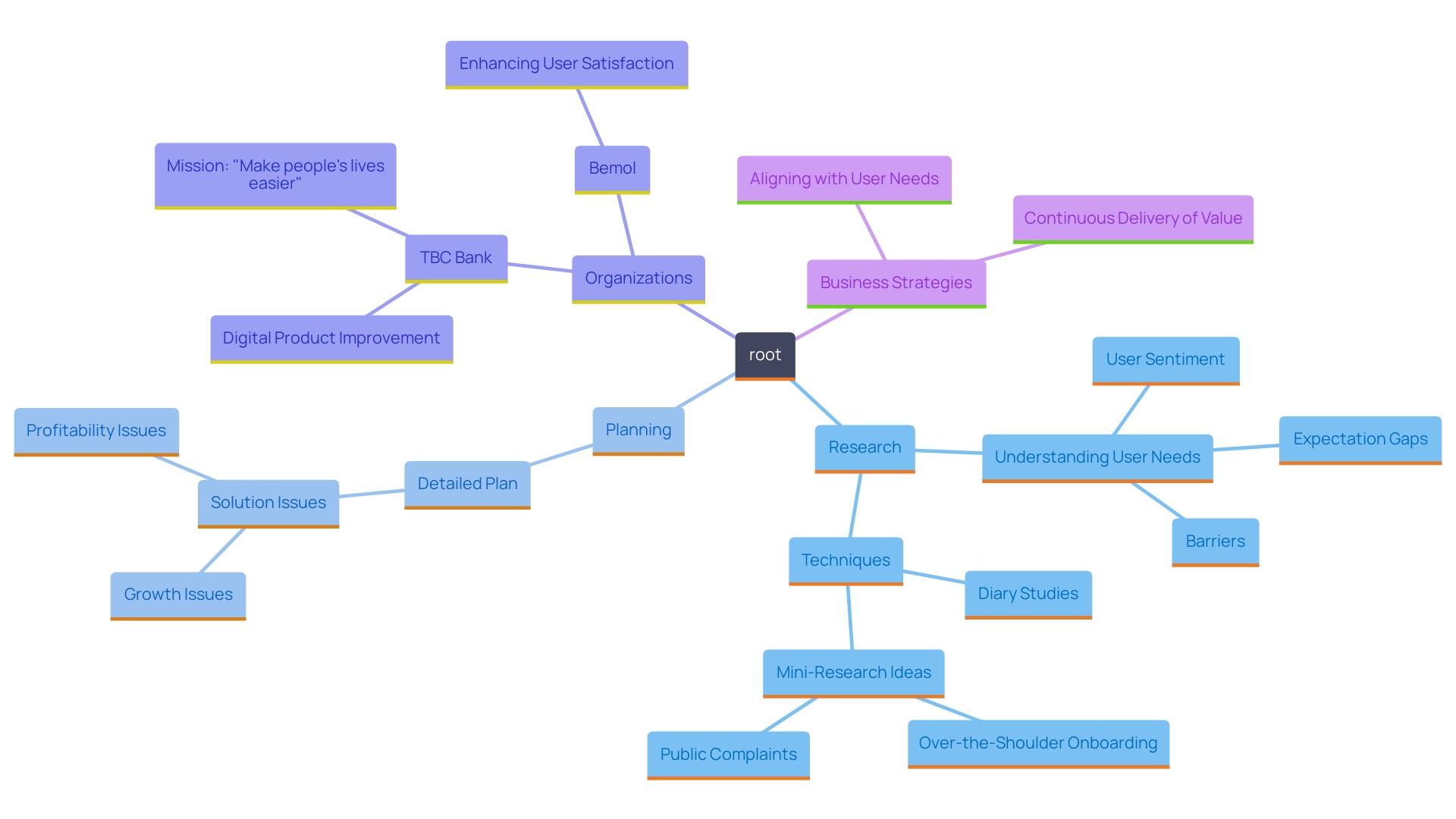
Step 6: Testing and Debugging
Comprehensive testing is crucial for guaranteeing that your extensions function perfectly and integrate smoothly with the platform's core features. Employing both unit tests and integration tests will allow you to verify that your code operates as intended while maintaining compatibility with Magento. These testing methods are not merely optional steps; they are critical components of a systematic approach to quality assurance.
Debugging tools, such as Xdebug, play a pivotal role in identifying and resolving issues that may arise during development. With these tools, developers can trace the execution of the code, allowing for a more in-depth understanding of any anomalies. This proactive approach to debugging minimizes the risk of bugs slipping into production, enhancing the stability of your applications.
Moreover, conducting User Acceptance Testing (UAT) provides invaluable insights into how end-users interact with your extensions. Real-world feedback is essential, as it ensures the final product aligns with customer needs and expectations. As Melissa Tondi, an industry expert in software testing, emphasizes, the focus should be on building efficient, innovative solutions that bridge the gap between user requirements and delivered value.
'Incorporating a structured testing strategy not only enhances your add-on's reliability but also aids in maintaining high-quality standards across your e-commerce platform.'. Given that organizations are increasingly adopting agile methodologies, integrating continuous testing practices can significantly shorten the development lifecycle while enhancing overall software quality.
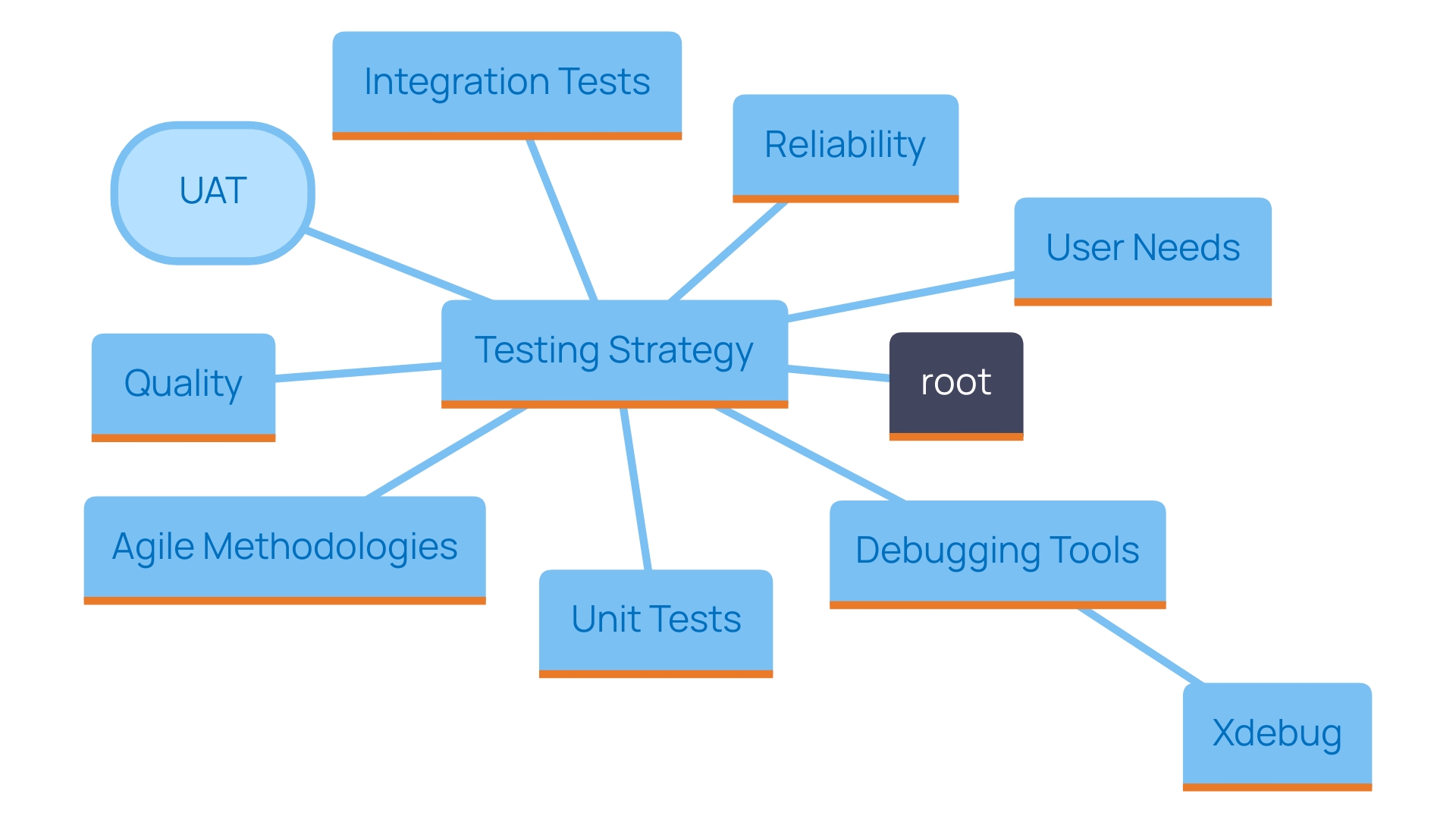
Best Practices for Magento Extension Development
Following Magento’s coding standards and best practices is essential for developing dependable and sustainable add-ons that endure over time. To ensure this, it's essential to keep the code modular and reusable. This approach not only enhances the code's efficiency but also facilitates easier updates and debugging in the future.
Thorough documentation of your code is another fundamental practice that cannot be overlooked. Comprehensive documentation serves as a reference for future developers who may work on the project, making it easier for them to understand the codebase and implement changes effectively.
In the fast-paced world of e-commerce, regularly updating your extension is vital. This not only addresses security vulnerabilities but also improves overall functionality, ensuring that your platform remains competitive. According to research, a healthy codebase significantly impacts speed-to-market and minimizes defects, emphasizing the need for continuous improvement.
Leveraging version control systems like Git is highly recommended for tracking changes and collaborating with team members. Git not only maintains a history of modifications but also allows multiple developers to work on the same project simultaneously, reducing bottlenecks and enhancing productivity. As businesses increasingly adopt strong e-commerce frameworks, the importance of clean, maintainable code becomes more critical than ever, ensuring adaptability and robust performance in a competitive landscape.
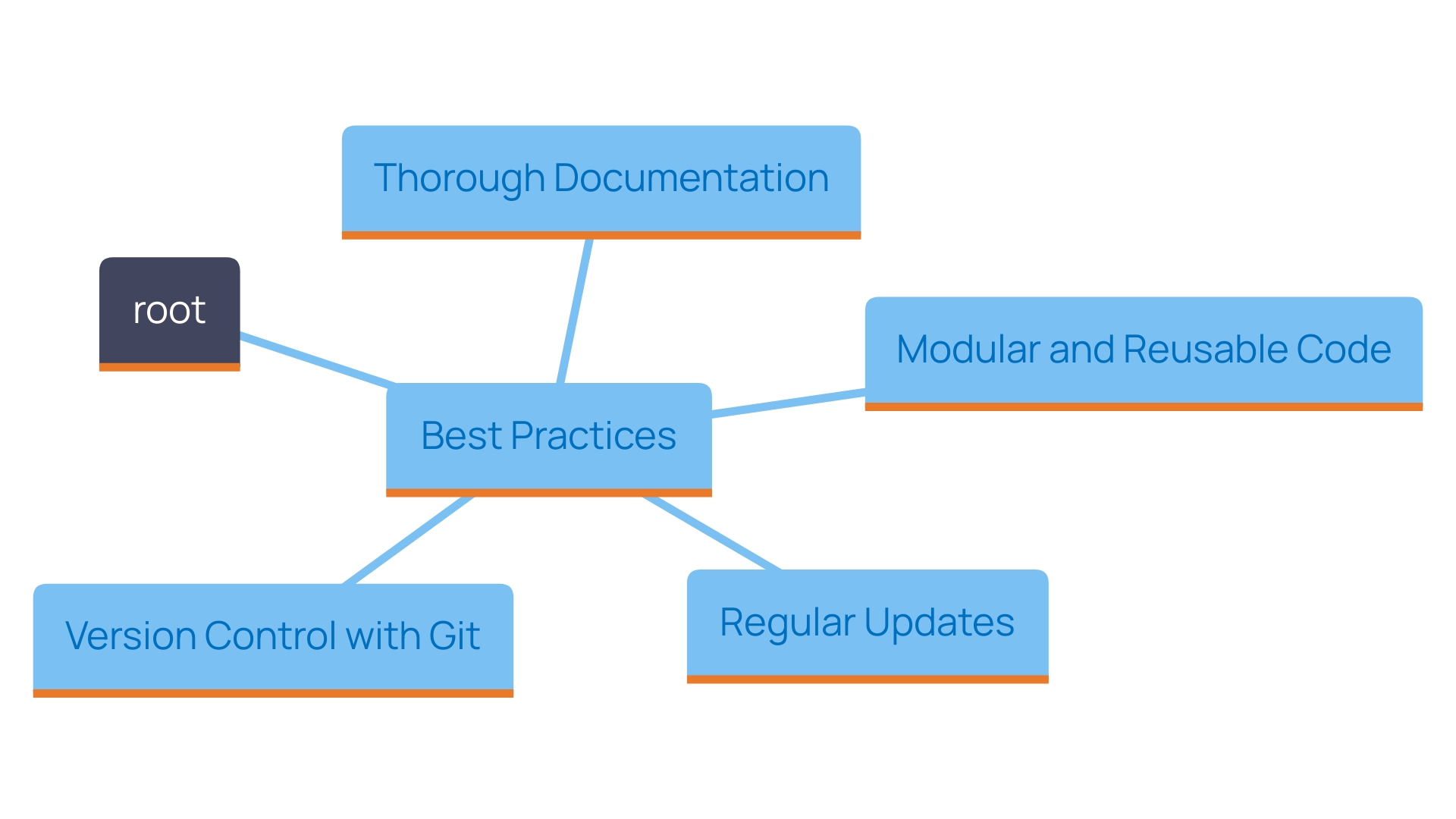
Conclusion
Custom Magento extensions represent a pivotal advancement in the e-commerce sector, offering tailored solutions that significantly enhance operational efficiency and user experience. The ability to customize functionalities allows businesses to distinguish themselves in a saturated market, driving not only improved customer satisfaction but also increased revenue generation. As illustrated by successful case studies, the integration of bespoke features facilitates agility and responsiveness to evolving market demands, making custom extensions an indispensable asset for growth.
Preparation for developing these extensions requires a solid understanding of Magento's architecture and the necessary tools to streamline the development process. By investing in foundational knowledge and best practices, businesses can ensure a smoother development journey. The importance of meticulous planning, user-centered design, and comprehensive testing cannot be overstated, as these elements are crucial in delivering a high-quality product that meets both user expectations and business objectives.
Ultimately, adhering to best practices in coding, documentation, and version control will ensure that Magento extensions remain reliable and maintainable over time. As the e-commerce landscape continues to evolve, the commitment to continuous improvement and adaptation will be key to sustaining competitive advantages. By leveraging custom Magento extensions effectively, businesses can not only meet current operational needs but also position themselves for long-term success in an ever-changing digital marketplace.





